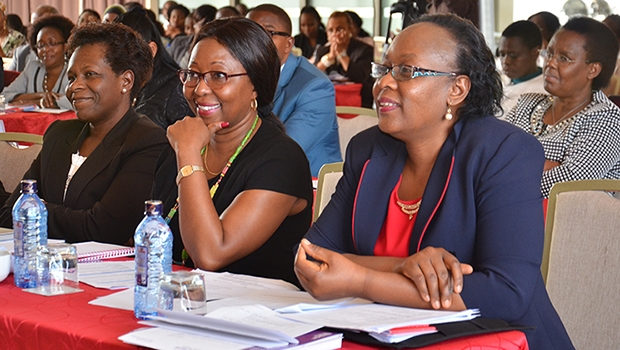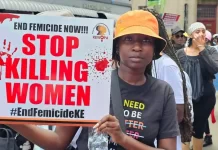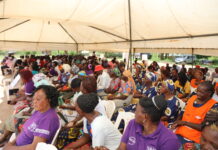By Clifford Akumu
In 1985, during the opening panel of the first Commonwealth Women’s Affairs Ministers Meeting (WAMM) in Nairobi, Kenya, almost all of the seats at the podium were occupied by men.
And even among the 54 member countries who attended, the number of women in senior leadership or professional circles was wanting!
At the recent 12th WAMM, 34 years later, all of the panel members are women, a clear indication, most of the member countries have made steady progress on women’s participation in policy-making and leadership tables.
No wonder, there is no doubt that in the leadership and decision-making terrain-the countries are making significant strides. In deed change is visible, with many examples to show that.
Take the case of Rwanda, it leads the way with 61 per cent female representation in parliament, ranking it 1st among all African countries and across the world. Ethiopia, Tanzania, Burundi and Uganda follow suit with over 33 per cent female representation in parliament. And Kenya is not doing well either.
But, although a lot of ground has been gained, it is clear there is still gender imbalance, the meeting heard. In Kenya for example, there is still a long way to gender parity in cabinets what with the hiccups surrounding attempts to implement the two-thirds gender rule in Parliament.
It is for this reason that gender and women’s affairs ministers from 33 out of the 53 states are in Nairobi to explore the gains and the yawning gaps in progress in several key areas, including women in leadership, ending violence and increasing access to family planning services.
The Commonwealth Secretary General, Patricia Scotland while opening the meeting in Nairobi, reiterated the need to put more effort in ending conflict-related sexual violence against women and girls.
She noted high prevalence of violence against women and girls throughout the world, despite advances in women’s economic status, leadership and agency.
Of the 53 member countries, 47 have laws against domestic violence; 20 have legislation that explicitly criminalises marital rape; 40 have legislation against sexual harassment; and nine have legislation that offers broad protections for LGBTI people.
“It is encouraging that member states have achieved, to some extent, gender parity; but more needs to be done to end gender inequality,” said Scotland.
“The meeting is an immensely valuable opportunity for member countries collectively to monitor and evaluate progress towards achieving Commonwealth priorities on gender equality and attainments”
Underscoring the interlink between achieving the sustainable development goals and the rights of women and girls, she added, “If we do not get gender equality right, we will not achieve the SDG’s.”
And to achieve peace and security among women, there is need to include their voices. HRH Sophie, Countess of Wessex the representative of the Queen of England (Royal Family) during the meeting believes, “Women should be promoted as peace negotiators considering their expertise in such matters.

Attendees further urged state parties to take appropriate measures to eliminate discrimination against women in the field of health care in order to ensure, on a basis of equality of men and women, access to health care services, including those related to family planning.
President Uhuru Kenyatta in a statement read on his behalf by the Cabinet Secretary for Sports, Culture and Heritage Ambassador Amina Mohammed urged member countries to strengthen and monitor recommendations on gender equality and women empowerment.
“We need to promote women engagement in decision and policy making. Progress for women and girls is progress for all,” said Kenyatta.
As of October 2018, there were 302 women ministers in Africa out of 1,348 in total. Kenyatta added, to accelerate gender equality time is ripe to utilize the synergies and learn from other member countries.
Agenda 2030 with its specific target to ensure women’s full and effective participation and equal opportunities for leadership at all levels of decision-making acknowledges the instrumental role of women’s participation in politics.
The Ministers are deliberating on what they term ‘The Nairobi Declaration’ that now seeks to realize human rights for all and to achieve gender equality and women’s empowerment, an important component of which is to ensure the sexual and reproductive health and rights of women and girls (SRHR).
This year’s meetings brought together civil society organisations, women minsters under the theme ‘From Commitment to Action: Accelerating Gender Equality and Women’s Empowerment for Sustainable Development’.













